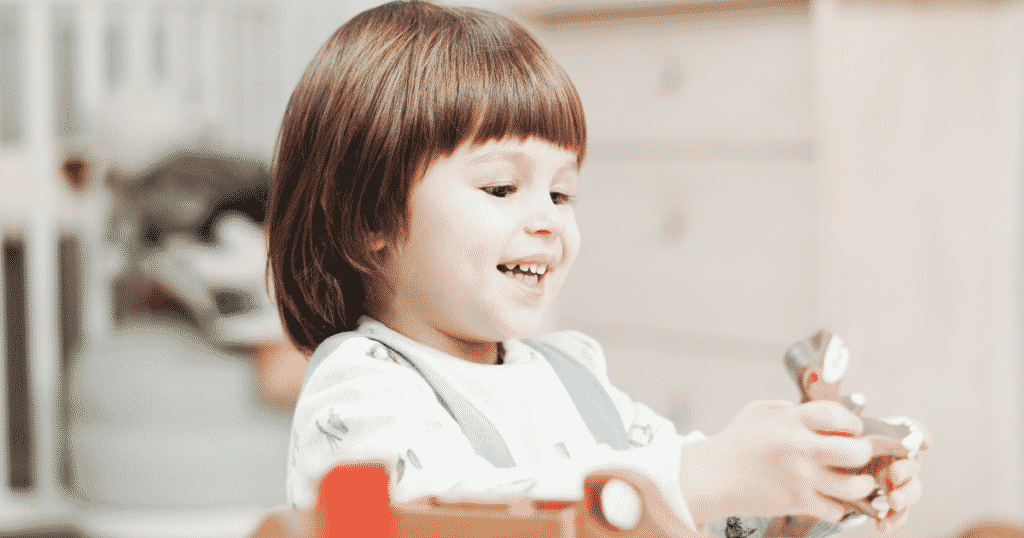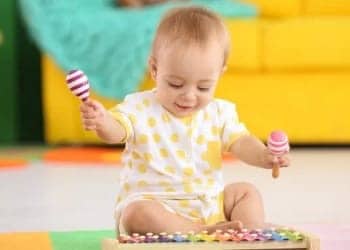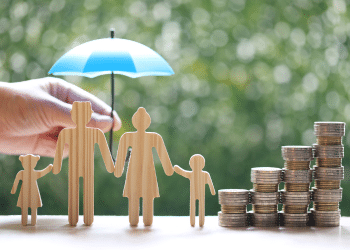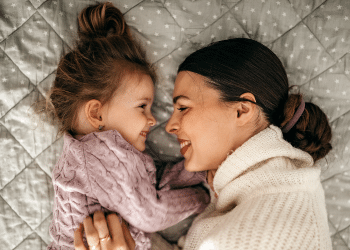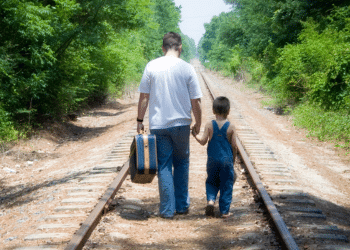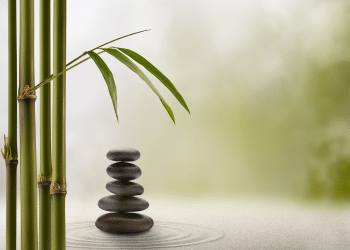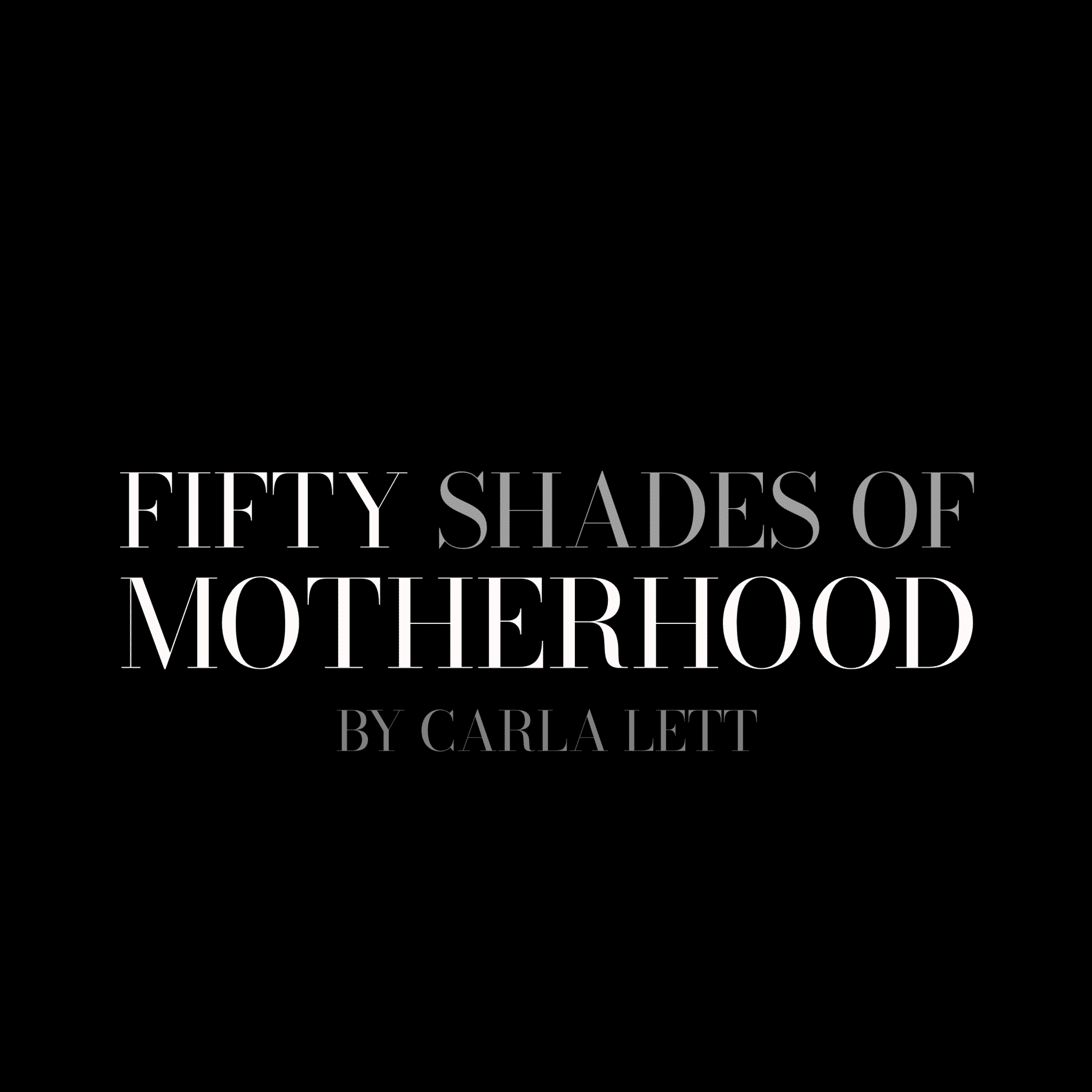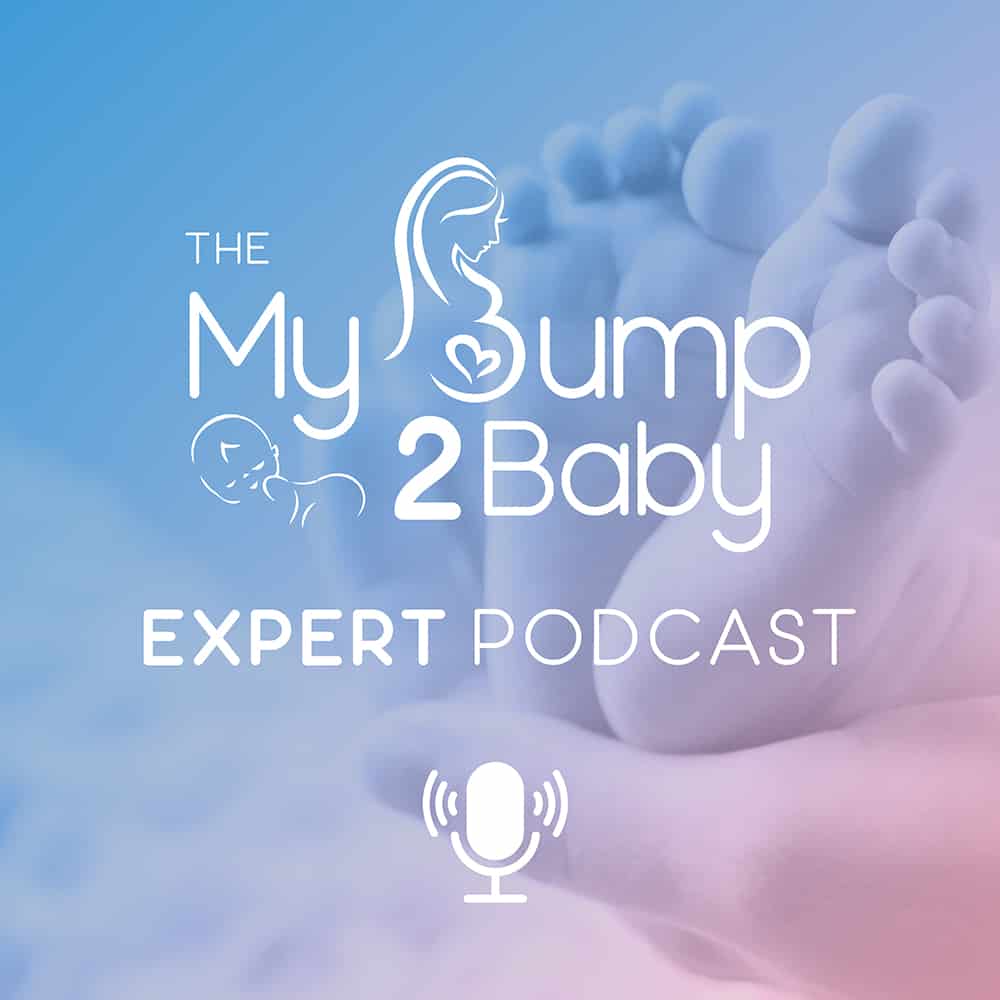- The Importance of Child Led Play
Today we speak to play therapist Jenny Reid from the Apple Tree Centre in Sheffield all about the importance of child led play. Jenny answers commonly asked questions that many parents have around child led play. Jenny covers when to start child led play, the benefits of child led play, how parents can encourage child led play, and how often we should focus on child led play activities.
Here are the Apple Tree Centre’s Social Links:
https://www.facebook.com/appletreecentresheffield/
Carla: [00:00:00] Hello and welcome to My Bump 2 Baby Expert podcast, where we bring experts from all over the UK to answer your questions on everything, pregnancy to preschool.
[00:00:27] Today. I am speaking to a play therapist, Jenny Reid, from the Apple Tree Centre and she is going to be talking to us all about child led play. I hope you enjoy it.
[00:00:50] Hello everyone. And welcome to my bump to baby expert podcast. Today, we have the lovely Jenny Reid, play therapist at Apple tree centre in Sheffield, and she is going to be talking all about child led play. So hi, Jenny.
Jenny: [00:01:09] Hi, Carla, it’s lovely to have you on here today. Thank you. So we’re going to be talking a bit around child led play today.
Carla: [00:01:17] Um, so can you tell me when, when can you start child led play with your children?
Jenny: [00:01:24] Yeah, I thought that was a really interesting question. I mean, basically from day one, as soon as the child has enough motor skills to initiate any kind of interaction. So for example, if you think about a baby who’s a couple of weeks old and they start sticking their tongue out, um, the parent can mimics that, can imitate that, and the child will stick their tongue out back.
[00:01:43] And that’s the beginning of child led play. Um, I suppose thinking about when children are playing more actively and deliberately probably starts between about six months in a year, And when children can hold toys and can give you toys and take them back or throw things on the floor and wait for you to give them back.
Carla: [00:02:00] Oh, wow. So it starts quite young. That that’s really interesting. That’s really young. Yeah. When we say child led play, I actually think, Oh, toddler child, but that that’s fantastic. Yeah.
Jenny: [00:02:11] I think the thing is that for children, there’s not really a distinction for young children between play and everything else. So everything a baby does is playful. Everything a baby does is creative and learning. Um, and. You can’t separate. If that makes sense.
Carla: [00:02:25] That does make a lot of sense. It’s actually, yes. So, so what are the benefits then of, of child led play?
Jenny: [00:02:33] This is the one that I could talk about for hours. Um, so in terms of thinking about that really early play, the main benefit is about attachment building relationships, building communication, build a connection. Um, the attunement between parents and child. I don’t know if you’ve watched people with a, a parent with a very young baby and their faces reflect each other. Movements reflect each other. And if the child smiles, the mum smiles or dad smiles and the baby smiles back, um, and that’s all building a really secure attachment. As the child gets older play is, as I said, it’s an intrinsic parts of their lives. So it’s the way that they learn about the world. And the more we play with children, the more they learn to play by themselves and to solve problems for themselves. Um, To understand the world that’s going on around them. If you think about that toddler play as, you were talking about, so you might take a child shopping, and then when you come back, they want to play shops. And they’ll put things in a basket and pass them to you. And that’s all about the child learning and developing and their understanding of how the world works and what sorts of rituals and routines we go through in our daily lives.
And, you know, as children get older, then they can incorporate much more complex things. So I remember when my little girl started school. She was only tiny. And she came home and made all her toys sit in a row and she made them answer a question one by one and told them off if they talked at the wrong time. And I thought this is something it’s really useful for her learning, but she’s also processing something quite difficult emotionally about this really strange situation. Where the teacher tells you all what to do when you have to be quiet. She’d never been in that kind of situation before. So, you know, as children get older, plays an invaluable way of them understanding the emotional quality of the world around them and the relationships that they have with other people and trying things out and practicing different interactions and different stories to see where they’ll go.
Carla: [00:04:21] Yeah. That’s really interesting. Yeah, of course. I mean, when you say it, um, you know, it start, they just start so young, doesn’t it? Um, yeah, I mean, my son is the same. He he’s often kind of copying different things and it is really interesting. So with child led play, then is that I’m guessing when the child decides what they want to play or can you kind of set the scene for them? Or is it just to let their imagination run wild?
Jenny: [00:04:49] I think he can be both. So as a play therapist, my work is almost all non-directive. So I set up as wide, a range of toys as possible, and let children come and play whatever they want to do. Obviously, within a home, you do have a little bit more structure and you might be playing at a time that suits that suits you. You might not have access to lots and lots of different toys and materials. So one example that I sometimes give parents when they’re thinking about how they can do more childhood activities with older children is if you’re making tea, you might let an older child make a salad and they can decide what they want to put in there. Or, um, you might make pizzas and let the child decide what sorts of things, how they want to decorate them. It’s all about giving as much control as you can to the child, because that helps them to develop self esteem as well. And to recognise that you’re recognising their expertise and that they can solve problems for themselves and that you respect what they’re interested in, I suppose.
Carla: [00:05:42] Right. That’s really interesting. Um, so how as a parent, can we encourage, um, led play? Cause I know it, especially at the moment, it’s so easy to give children yeah. TV, electronics as parents. I mean, god I, for one, yeah, I know I do probably do it a bit too much, but how can we encourage that child play then with children?
Jenny: [00:06:04] Yeah I mean I think theres a few things. One is that children do spontaneously play. Most children will play and will initiate play spontaneously if we don’t get in their way. So I think you’re right. That there’s a big temptation to put children in front of screens. Um, I don’t think there’s a parent who doesn’t do that. You know, there was some that’s useful as well, that has its place, children need their downtime and they need that input from somebody who isn’t the parent. The other thing is that I think a lot of parents feel under pressure to create activities, particularly at the moment, children, mostly are not in school. And there’s that huge pressure to do educational things and to, um, to paint rainbows and bake biscuits and do math. And actually a lot of the time children don’t need us to structure that time, that heavily, if we get out of their way, they will go and run out in the rain and find a stick and make a tent or a den or, or an army or a dance or something out of that.
Carla: [00:07:03] Yeah. So it’s maybe a good thing to actually let them break away from that routine sometimes. And just actually, do what they want to do at that time.?
Jenny: [00:07:14] Yeah, and it’s about following their lead. So, you know, you might be doing something with a child that feels very constructive and structured, like a board game or a piece of art, and then they do something that’s not quite what you expect. And if you’re attuned to the idea of child led play, you can just kind of follow that lead and see where it takes you. It doesn’t have to be something that you set up as a, as a separate activity.
Carla: [00:07:35] That’s really good advice because I think, I mean, we were only playing the other day snakes and ladders. I was like, no, you don’t do that like that. No, you don’t do like that. But I suppose it’s letting them be in control of the game. Really?
Jenny: [00:07:49] Yeah. And it’s a lot of pressure for parents. Isn’t it to feel as if we’ve got to structure every bit of our children’s day and give them educational, healthy experiences. When actually, if we leave them to it or follow their lead. They’ll probably do a lot of that for themselves. Umm it’s reminded me of the Lego movie actually. Do you remember that? I don’t know if you’ve seen it, the idea that you can follow the instructions on the box and create everything exactly as it’s designed, or you can just let your imagination run wild and make something completely fantastical that has its own storY.
Carla: [00:08:20] Oh wow. No, do you know what? I’ve not seen it, but it sounds very good.
Jenny: [00:08:23] It’s really good. It’s also quite funny.
Carla: [00:08:27] Oh, wow. Right. Okay. So, from, from what age then would you, I mean, is that from any age? I mean, you know, like,
Jenny: [00:08:35] Honestly I think it’s young, it’s easier with younger ones. It’s more about not stopping it. I think when I. I remember when my children were toddlers, they would, I’ve got a video of my son sitting on a rock, telling me about the picnic he was having for a good 20 minutes when he was what, two or three. And there was no picnic. There were no people, but this whole story in his imagination. Whereas as he got older, he got more inhibited about. What he should be doing what he should be saying, whether people would approve. Um, so yeah, I think your younger children play spontaneously much more easily than older ones.
Carla: [00:09:09] Definitely. Definitely. Although do you know my son, sometimes I have to kind of control it a little bit. We went to Lidl, a bit off subject, but we went to Lidl and they’ve got these little trolleys. And he when he’s got one of those on the loose, that is, I mean, it’s, it’s mayhem down them aisles. So what happens when you’re not in a situation, what’s the best way to handle it when you’re not in a situation…
Jenny: [00:09:34] That the flipside isn’t it?
Carla: [00:09:36] Yeah.
Jenny: [00:09:37] That it would be wonderful. Cause one of the questions that you sent me to think about was when, how often should you do, encourage child led play? And I want to say all the time. It’s so good for children to solve their own problems to create their own ideas, their own adventures, to interact with you in the ways that they want to. But, obviously in everyday life there are times when you need them to have a shower. There are times when you need them to go to bed or to eat a meal, or when you’re out in public and, the things that they spontaneously want to do are just not appropriate or not acceptable. And in lots of ways the more time you spend playing with them and following their lead, the more likely they are, and to be attuned to you when you say actually know that it’s time to stop. If that makes sense.
[00:10:23] So it’s not about, child led play isn’t about spoiling children by giving them everything they want exactly when they want it. It’s about allowing them the space to play, freely when that is appropriate and acceptable, and getting in alongside them as well, following their lead, letting them give you a character to play or, or just kind of reflecting what they’re doing, listening to their story and telling bits of it back to them. But also setting the boundaries when they need to be set.
Carla: [00:10:48] Yeah. Yeah. No, that, that makes a lot of sense. And do you encourage that then, right up the way, I mean, how old does that go on for? Just until, their kind of grownup?
Jenny: [00:10:59] Yeah. I guess, so, I mean, I’ve got a 12 year old now and he mostly doesn’t want to play with me cause that’s not cool. But it develops into following their interests. So, you know, whereas you’ve got a toddler and they might say., they might start playing out a shop. For example, I don’t know why that one always comes into my head. They might start bringing you things and asking you to put them through the till, and then they want you to give them money and, and you’re acting out you’re role playing with them at that age.
[00:11:28] And as they get older, it might become more, you know, them telling you about a film that they’ve seen or telling you about a book that they’ve read or an idea or a game that they played with their friends. And if you have been practicing that sorts of relationship where you show an interest in their interests and you’re willing to get alongside them they’ll then as they tell you about their day it sort of feels natural to follow that in the same way. Does that make sense? So again, it’s that blurry line between play and other parts of life that, my teenager, my 12 year old, doesn’t do role play with me, but he’ll tell me about a Marvel film and I’ll ask questions and show interest in the characters that he likes and notice the bits that are interesting and relevant to him rather than saying, Oh, well, I don’t think that films very good and wanted to talk about something that’s more interesting to me. Um, and I guess I see that as an extension of child led play.
Carla: [00:12:21] Yes. Yeah. That does make a lot of sense. Um, so with, with babies and toddlers, then, is there anything, any kind of toys that you could encourage that is a good idea for parents to get, you know, at birthdays and stuff like that, that would encourage that?
Jenny: [00:12:38] I think having as wide a range as possible. It’s really useful. So one of the things we think about when we’re setting up play rooms at the Apple tree centre is having toys from different groups. So we’ll have some kind of creative play dough, crayons, paints, finger paints, that kind of thing. We’ll have some sensory toys. So toys that you’ve, that have different textures or different sounds or. Even different smells. Sometimes some of the squishy toys have really interesting smells, um, that children can experiment with and then toys that encourage different kinds of role plays. So we’ll have, you know, the baby dolls and the bottles and the nurturing toys, and we’ll have the, the everyday, the shop things and the school things and the things that represent those kinds of everyday situations.
[00:13:20] Um, but also it’s really important to have some kind of aggressive toys. So that might be. You know, a long piece of foam that you can use as a sword, or it might be, um, action figures that children can play, fighting things or, yeah things that children can let out some of that tension and aggression and also act out some of the things that maybe they’ve seen on TV that have been a bit confusing for them.
Carla: [00:13:44] Yeah. Yeah, that makes a lot of sense. Is there anything Jenny that you think, um, we need to know that I’ve not asked you?
Jenny: [00:13:53] I think one thing, the one thing that I didn’t talk about in terms of benefits was about self regulation and emotional regulation. Um, but one of the things children learn from play is to take some of the heat out of those emotions. So, for example, when I talk about aggressive play, it’s not about teaching children that it’s okay to fight or it’s okay to hit, it’s about teaching them that it’s okay to be angry and that there are ways that you can express that kind of get to answer of your system and help you to feel more in control of that anger or children who are really, really sad, you know, can you use play to sooth themselves. My daughter did an amazing painting actually a couple of weeks ago. Um, she was really, really angry about COVID-19 and the fact that she hadn’t seen her best friend for weeks and weeks and weeks, and she painted a really angry black and green the paint, all over this thing and it was all about, this is the virus mummy and it’s destroying our lives. And then she turned it over , i’m going to well up a bit. She turned it over and painted a rainbow on the other side.
Carla: [00:14:49] Oh, Oh, that’s lovely. Its getting it out isn’t it? Getting that frustration out of them.
Jenny: [00:14:56] Yeah. And then she said, what do people do, mummy, when they come to see you at work? And I said, well, the basically you do what, you’ve just done that letting the emotions out, discharging it, or sharing it with somebody. So having a parent or a friend or a therapist, or, you know, granny or grandad can be amazing people there to see that and say, yeah, I understand how you feel.
Carla: [00:15:15] No, that makes a lot of sense.
Jenny: [00:15:17] In terms of child led play, you know, is to some extent, quality rather than quantity. So if parents can sit down with their children for five minutes, a few times a week and just follow the child’s lead, just do what the child wants to do and play along rather than always being, feeling as if they have to be in control, it’s a massive weight off the parents’ minds often, but also it does give the children something really valuable that they can take away. And, you know, a child who learns through play and through play with an adult to calm that anger and their sadness is a child who’s going to sleep better because they know how to see themselves and how to manage their own emotions. It’s a child who’s going to, you find it easier to make friends because they know how to. To calm their own needs to listen to what somebody else is asking for. Yeah. It’s a child. Who’s gonna be able to concentrate better at school because they no how to calm their brain and how to. And does that make sense?
Carla: [00:16:12] Yeah, so there’s a lot, a lot of benefits of child led play a lot more than what I actually realised. So I think parents are going to be, Mmm. I mean, it’s very informative conversation that we’ve had there, so, yeah. That’s fantastic. So thank you so much. And can you just tell people a bit about you, Jenny, and then also obviously where, where people can find you.
Jenny: [00:16:35] Yes. So I’m a play therapist. I work at the Apple tree centre in Sheffield. So we offer counselling and creative therapies for young people, aged between our website, says four to 25, but we’ve worked with younger children and with very young children, we would work to support the parents. Um, we have a website www.appletreecenter.co.uk.
[00:16:56] Um, and at the moment we’re offering some online support and telephone support. Um, most of the time our therapies offered face to face, but obviously when this current crisis lifts, a lot of organisations are going to have to look again at how they offer their services and whether there’s a future for us in offering online support longer term.
Carla: [00:17:15] Oh, okay. That’s great. And Jenny, would people be able to contact you and ask you any questions around that?
Jenny: [00:17:20] Absolutely. That’d be very welcome to, yeah.
Carla: [00:17:23] Excellent. Excellent. That’s that’s fantastic. So what we’ll do is we’ll put all of the links in the show notes. So you have all got access to, um, Apple tree center’s website, um, and Jenny, um, but thank you so much, Jenny. It was so lovely speaking to you and really, really interesting.
Jenny: [00:17:40] Great. I hope I haven’t given you too much information in a huge pile.
Carla: [00:17:44] No, you haven’t. No, it’s fantastic. I think that’s been really, really informative and I’ve learned a lot myself. So thank you.
Jenny: [00:17:51] It was lovely to talk to you.
Carla: [00:17:52] Thank you.
[00:17:54] Thank you for listening to My Bump 2 Baby’s Expert podcast. If you would like to find help and support from experts in your local area, head over to www.mybump2baby.com and you will also be able to find local pregnancy to preschool groups, classes, businesses, and services in your local area.
[00:18:29] This podcast is sponsored by My Bump 2 Baby family protection and legal directory. Being a parent is such a minefield. It’s so difficult deciding who to select when it comes to financial advice or family law solicitors. My Bump 2 Baby works with one trusted financial advisor and one trusted family law, solicitor in each town throughout the whole of the UK to find your nearest advisor or family law, solicitor, head over to www.mybump2baby.com/familyprotectionlegal.


